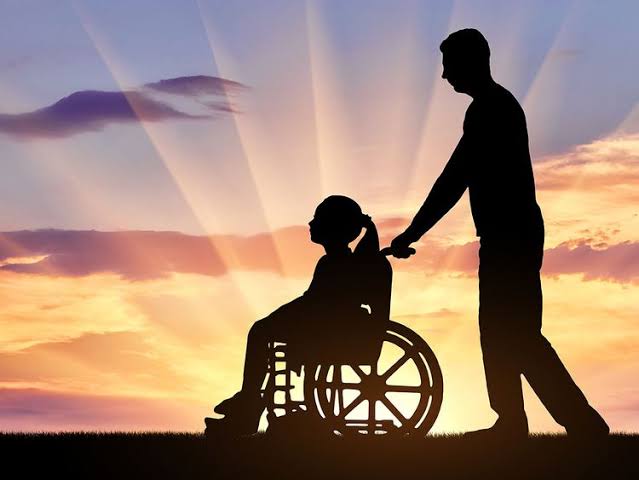Disability rights under the spotlight

The sordid incident is momentary, the malaise within us deep rooted and prejudiced. To stop a special-needs child from boarding a flight because his demeanour was a ‘risk to other passengers’ is not arrogance or stupidity. It is instead symptomatic of a callous society that has time and again displayed that respect is only for the conventional and the comfortable.
The adolescent sitting in his wheelchair was just another reminder, a dirge for a people who dismiss empathy as casually as a used tissue.
An eye witness recounts that Indigo airlines wanted the boy to ‘become normal’ before he could be put on the flight adding that ‘behaviours such as this, and that of drunk passengers, deems them unfit to travel.’ The manager may be the fall guy but he was only following man-made rules.
The airline in a statement defended its actions saying they were in line with ‘safety guidelines’ and then, completely missing the woods for the trees, offered the boy an electric wheelchair as a gesture of their ‘appreciation.’
Inclusion is nuanced for a society that is still shadowing at the starting line when it comes to acceptance of special needs specifically and disability at large.
Dignity and not pity
‘They’ should stay unseen and unheard because ‘we’ are the ones who get triggered, this belief extends to 2.2% of the population or at least 26.8 million people (World Bank estimates 40-80 million Indians with disability) who have been knocking at doors to be treated with dignity and not pity.
Think for a moment about the parents whose son was thrust into unnecessary spotlight. For caretakers like them it is a daily grind where anxiety is about even one hair out of place.
When will we as a society extend them a helping hand? I have seen kids come out of a pool as soon as a child with autism joined them.
Our tragedy is that no adult told these children to go back into the pool and swim together.
There have been ample opportunities to correct the course, a furore almost a decade ago when a cerebral palsy patient was offloaded by SpiceJet airlines without an explanation. The pilot reportedly was not comfortable flying with her on board. Incidents like these are treated as a 24- hour news cycle but it is here that outrage needs staying power.
In February this year a woman on a wheelchair was denied entry into a Gurgaon restaurant and bluntly told that her wheelchair can’t go inside as it would disturb the other customers. In despair the woman asked, ‘why do I have to fight for the smallest of things?’
Why does she? And, millions of others like her? Our focus on world class amenities will remain incomplete if we don’t prioritise basic infrastructure for our community with disability.
Forget the bullet trains, for a special needs citizen travelling on any public transport is an ordeal. Growth comes when parity is not demanded but treated as a fundamental right, we are far from bridging that gap.
Break this bias
The Rights of Persons with Disabilities Act, 2016 among other things promises equality of opportunity and accessibility. Forbes last year reported that only 34 lakh of the 1.3 crore employable in the country have a job. To break this bias accessibility must also become mainstream.
Why don’t restaurants and malls build ramps as a matter of habit? We tweet about medals won at the Paralympics but don’t question the conditions in which athletes who bring glory to the country have to struggle to access their stadium for training.
Why isn’t easier parking a norm with strict penalties for those who misuse designated spots? Why are parks and public spaces simply not friendly? Protecting the rights of the boy on the wheelchair sounds almost ambitious when we don’t make their everyday better.
Manasi Joshi, para badminton world no 1 says there have been times she has cried at the airport, ‘it is humiliating since you actually have to strip to show your prosthetic leg and that too in front of the public.’
Actor and dancer Sudha Chandran faced a similar nightmare and these are public figures and adults. Give a thought for the anonymous couple ferrying their child from Ranchi.
In this entire repugnant episode it was heartening to see how fellow travellers rallied behind the child even though they failed to move the airlines. This stigma exceeds awareness especially when the involvement of stakeholders of the community is not taken.
Citizens with disability are not a burden, it is our lack of compassion that insults them with this belief. And it is this fight for acceptance that a man at an airline gate just pushed back against.
To quote journalist Shubhra Gupta who has a son with autism, ‘And it’s not just about that boy on the wheelchair and his parents: Don’t we all need wind beneath our wings?’
Jyotsna Mohan is the author of the investigative book 'Stoned, Shamed, Depressed'. She was also a journalist with NDTV for 15 years. Source: Gulf News




